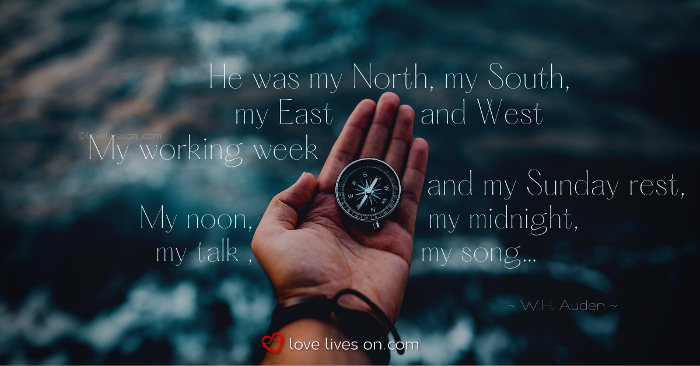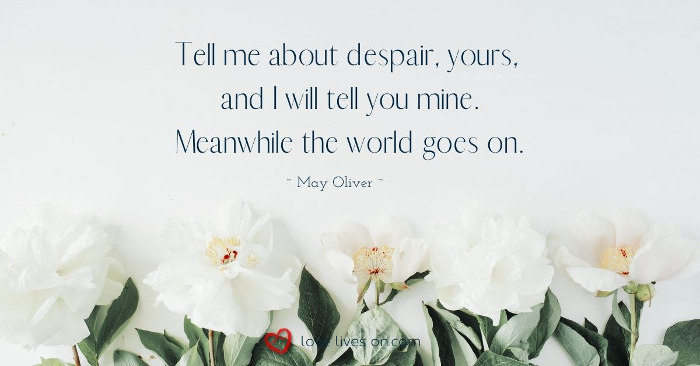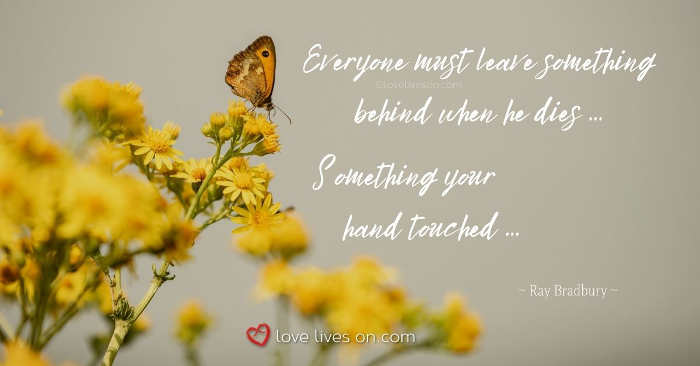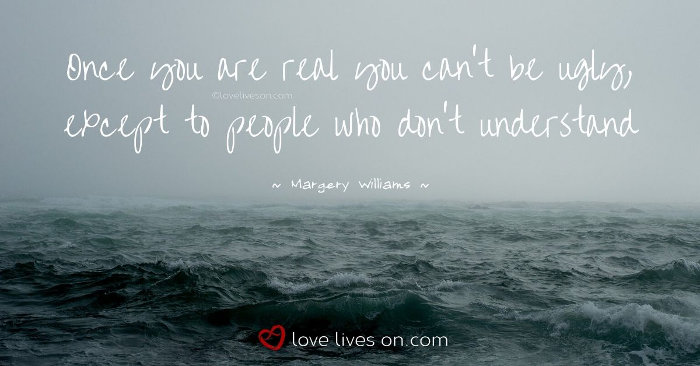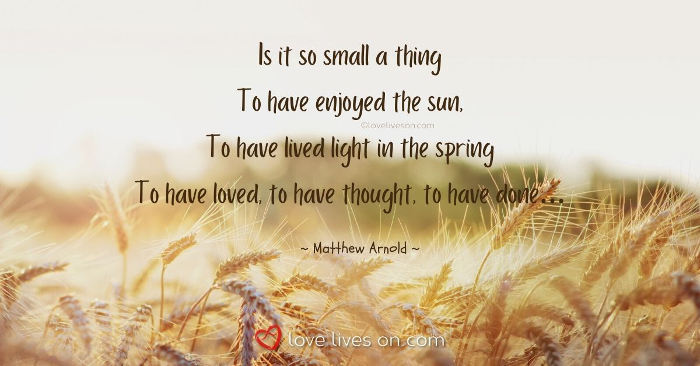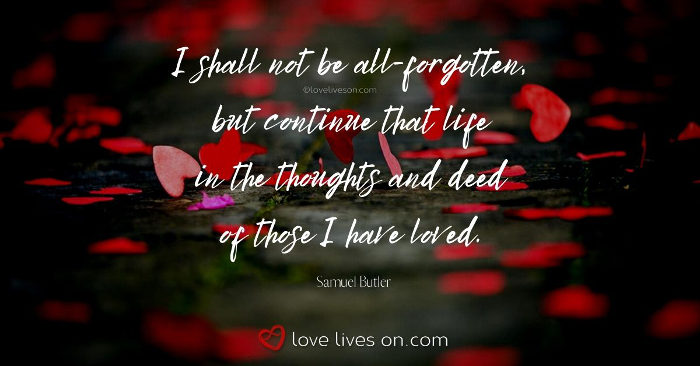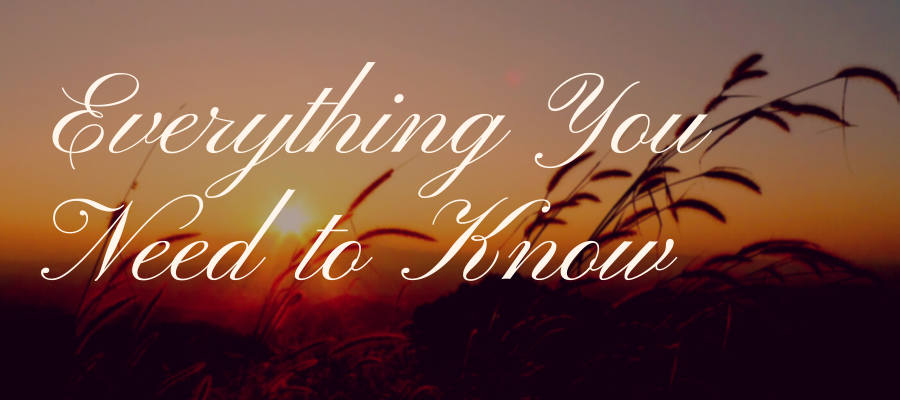
Are you wondering what is a humanist funeral, or looking for practical information on how to organize one? Don’t worry, whatever your questions, we’ve got you covered!
What is Humanism?
According to Humanist Toronto: “Humanism is a philosophy or life-stance based upon a profound respect for human dignity and the conviction that human beings are ultimately accountable to themselves and to society for their actions.”
“It is a deity-free worldview that affirms our ability to lead ethical and meaningful lives without reliance upon a belief in the supernatural. Humanists are guided by reason and scientific inquiry, inspired by music and art, and motivated by ethics, compassion and fairness.”
The best one-page resource for humanism is called The Humanist Manifesto III.
What Do Humanists Believe About Death?
An elderly friend, renowned artist Frank Panabaker, once told me before he died that he believed that when we die, we die.
He believed death was the end, and nothing follows – no ghosts, no spirit, no afterlife: zero, zilch, nada! And extrapolated from that belief – no almighty powerful God. No guy up in the clouds looking down and judging each individual’s every move, right or wrong. No granting of wishes or prayers, no punishment for blasphemy, no devil, no heaven, no hell. No omniscient, omnipresent creator of the universe.
We are born, we live, we die – that and only that is our story. If death is indeed the end of our physical existence, it is felt by humanists that it is even more important to live our one and only life that we know in the best possible way and to the best of our ability.
Humanists understand death more as part of the circle of life that all forms of life participate in.
The dead flowers, animals, trees, fish, and humans that die decompose and are part of a natural and endless chain of events from living to nonliving matter. These broken-down composites are those that nourish every aspect and corner of the earth.
Does Anything of Us Survive Death From a Humanist Perspective?
Our legacy of ideas and shared experiences survives our physical death through the memories of those left behind. Our genes live on in our descendants, and our good works and inventions continue to improve society and civilization.
What is a Humanist Funeral and Who Would Want One?
Do you believe in a higher power, an afterlife or reincarnation? A humanist funeral is for you or your loved one who answered ‘no’ to this question. Non-religious ceremonies that mark the end of life can be designed to be both personal and meaningful.
We are understandably filled with emotion when someone leaves the fold of the living for good. Rituals and ceremonies enable us to gather to share emotions that range from relief and sadness of loss to the authentic bittersweet joy of celebrating a life well-lived.
Humanist funerals dispense with any religious doctrine, songs, or holy book readings. Ceremony is designed in a contemporary fashion, sincerely honoring the deceased in a heartfelt and inclusive way.
Since life is significant and words are said to have an impact, humanists do not wish to say or do things that they do not believe in – in fact, they feel doing so would be the height of hypocrisy!
Kathy Diedrich, President of the Humanist Society (the endorsing organization affiliated with the American Humanist Association), explained that a funeral from a humanist perspective “is a commemoration and celebration of a person’s life; a recognition of the impact that they have had on this world while they lived and the impact that they leave behind them.” Humanist officiants are “bound by a code of ethics and cannot promote beliefs and understandings that are inconsistent with humanism.”
The focus and context of the humanist funeral is on the life story, the essence of who the person was and how they lived in this life and not what is speculated by various religions as to what will happen next – after death. Instead of hymns, there will be music of a non-religious nature, perhaps favorite life-affirming songs.
Prayers are replaced by silent reflection or readings about a life well-lived. There are many ways to emphasize life milestone significance – from simple and sincere to elaborate and moving and everything in between.
Who Officiates at a Humanist Funeral?
Guidance and different ceremony templates devised by humanist organizations are offered worldwide and the ceremonies are modified and conducted by trained humanist officiants or celebrants to meet the needs of those who ascribe to the school of humanist thought and theory.
Grieving family and friends have the profound and necessary opportunity to give voice to their feelings and to share memories as they celebrate the life that was.
Marking such a major life event requires an honest and astute interpretation of the context of both the life lived and the needs of those still living after the death. Saying goodbye in a sincere and dignified way honors the essence of who someone was in life.
A trained celebrant, like Life Cycle Celebrants™, and humanist celebrants, will listen to their client, create an appropriate program, and guide mourners through the ceremony, helping them navigate through their respective emotions.
According to Kathy Diedrich, humanist officiants at an initial consultation with potential clients will tell them, “If you are looking for a religious ceremony, I am not your right choice.”
Kathy views “each ceremony as being tied to a client. It is not as if we are just going through the motions that religion requires of officiants; we are really going in there to offer a very professional service in a way that traditional religions don’t.”
Do You Have to be a Humanist to Have a Humanist Funeral?
Since most humanist funerals do not even mention the word humanist or explain the meaning or philosophy, it is not necessary for either the deceased, the organizers, or the mourners to have believed in the humanist construct.
What is important to understand is that there will be no religion or mention of a god or higher power in a beautiful, meaningful service that is life-affirming.
What is the Format of a Humanist Funeral?
The format of a humanist service varies as much as the people organizing it. Perhaps a largely traditional funeral format is chosen, substituting poems for scripture and contemporary music for hymns.
On the other hand, the humanist funeral is only limited by imagination, like sending off ash remains from the dock of the family cottage in a small handmade canoe ritually set on fire or scattering of ashes on a favourite hiking trail of the deceased or a hillside lookout.
Why are Humanist Funerals so Important to Families?
Every life is valuable with individual and unique traits from a humanist perspective. The humanist ceremony is, therefore, relevant and a dignified option for families who may want everything about the funeral to be a personal reflection on the life of their loved one.
It is a way to celebrate a life without the confusion of various religious beliefs and values that may occur and perhaps cause rifts, or even ‘eye rolling’ from some in a mixed group of people.
Everything said about a person and their life, however, has value, merit and meaning to everyone attending and is more likely to bring people together in the commonality of their grief rather than their differences vis-à-vis all things religious or spiritual.

Related Articles

How Do You Plan a Humanist Funeral?
Step 1 – find a celebrant. Use Love Lives On’s Business Directory, or ask your friends for recommendations, or your funeral director. A caterer and florist should also be found and booked.
Step 2 – choose a date in conjunction with the availability of the celebrant and the funeral home. Send out save the date invitations. Closer to the date, send invitations with details and RSVP.
Step 3 – gather pictures, readings and song ideas, stories from family and friends
Step 4 – meet with the celebrant and close family and friends to reminisce and discuss ideas for the service.
Step 5 – celebrant creates draft order of service and writes a eulogy or life tribute (could also be done by close family or friend).
Step 6 – designated family member approves order of service and eulogy.
Step 7 – family member contacts caterer to confirm refreshments and approximate numbers attending.
What is a Sample Order of Service for a Humanist Funeral or Memorial Service?
Order of Service
- Guests gather as medley of music plays.
- Guests are welcomed by celebrant who elaborates on reason for gathering (to celebrate a life and say goodbye).
- Life tribute or eulogy read by celebrant or family designate.
- Readings given by friends and or famly.
- Celebrant leads moment of silent reflection and private thought.
- Celebrant shares closing thoughts.
- Celebrant thanks guests for attending and those who participated in readings, eulogy, or music. Announcements may be made, reinterment and refreshments.
- Medley of music plays as guests leave.
- Guests gather for refreshments.
What Should I Wear to a Humanist Funeral?
Unless the invitation requests otherwise, attendees can’t go wrong wearing formal dark-colored clothing. Sometimes guests are asked to wear a certain colour, an armband or a hat; if so, it is courteous and respectful to comply.
The level of formality for the officiant varies with each client – some officiants have been asked to wear everything from the traditional black suit or dress to camouflage or red lipstick, but all professionals draw the line at nudity! It is paramount to maintain a high level of professionalism and authority – aesthetics matter.
For more information on what to wear to funeral, please read Love Lives On’s comprehensive guides for men, women and kids.
What Humanist Funeral Readings should I Consider Using?
Poems about death and reflecting on life are the most appropriate for humanist funerals or memorials. However, any secular readings, poems or lyrics that do not invoke something outside of humanist philosophy is acceptable.
Samples to consider include:
Funeral Blues
By W.H. Auden
Stop all the clocks, cut off the telephone,
Prevent the dog from barking with a juicy bone,
Silence the pianos and with muffled drum
Bring out the coffin, let the mourners come.
Let aeroplanes circle moaning overhead
Scribbling on the sky the message ‘He is Dead’,
Put crepe bows round the white necks of the public doves,
Let the traffic policemen wear black cotton gloves.
He was my North, my South, my East and West,
My working week and my Sunday rest,
My noon, my midnight, my talk, my song;
I thought that love would last forever: I was wrong.
The stars are not wanted now; put out every one,
Pack up the moon and dismantle the sun,
Pour away the ocean and sweep up the wood;
For nothing now can ever come to any good.
~
Wild Geese
By May Oliver
You do not have to be good.
You do not have to walk on your knees
for a hundred miles through the desert, repenting.
You only have to let the soft animal of your body
love what it loves.
Tell me about despair, yours, and I will tell you mine.
Meanwhile the world goes on.
Meanwhile the sun and the clear pebbles of the rain
are moving across the landscapes,
over the prairies and the deep trees,
the mountains and the rivers.
Meanwhile the wild geese, high in the clean blue air,
are heading home again.
Whoever you are, no matter how lonely,
the world offers itself to your imagination,
calls to you like the wild geese, harsh and exciting—
over and over announcing your place
in the family of things.
~
“Everyone Must Leave Something Behind”
From “Fahrenheit 451”
By Ray Bradbury
Everyone must leave something behind when he dies, my grandfather said.
A child or a book or a painting or a house or a wall built or a pair of shoes made.
Or a garden planted.
Something your hand touched some way so your soul has somewhere to go when you die,
and when people look at that tree or that flower you planted, you’re there.
It doesn’t matter what you do,
he said, so long as you change something from the way it was
before you touched it into something that’s like you after you take your hands away.
The difference between the man who just cuts lawns and a real gardener is in the touching, he said.
The lawn-cutter might just as well not have been there at all;
the gardener will be there a lifetime.
~
“Real Isn’t How You Are Made”
From “The Velveteen Rabbit”
By Margery Williams
Real isn’t how you are made,’ said the Skin Horse.
‘It’s a thing that happens to you. When a child loves you for a long, long time, not just to play with,
but REALLY loves you, then you become Real.’
‘Does it hurt?’ asked the Rabbit.
‘Sometimes,’ said the Skin Horse, for he was always truthful. ‘When you are Real you don’t mind being hurt.’
‘Does it happen all at once, like being wound up,’ he asked, ‘or bit by bit?’
‘It doesn’t happen all at once,’ said the Skin Horse.
‘You become. It takes a long time.
That’s why it doesn’t happen often to people who break easily, or have sharp edges, or who have to be carefully kept.
Generally, by the time you are Real, most of your hair has been loved off,
and your eyes drop out and you get loose in the joints and very shabby.
But these things don’t matter at all, because once you are Real you can’t be ugly,
except to people who don’t understand.
~
Hymn of Empedocle
By Matthew Arnold
IS it so small a thing
To have enjoy’d the sun,
To have lived light in the spring,
To have loved, to have thought, to have done;
To have advanced true friends, and beat down baffling foes;
That we must feign a bliss
Of doubtful future date,
And while we dream on this
Lose all our present state,
And relegate to worlds yet distant our repose?
Not much, I know, you prize
What pleasures may be had,
Who look on life with eyes
Estranged, like mine, and sad:
And yet the village churl feels the truth more than you;
Who ‘s loth to leave this life
Which to him little yields:
His hard-task’d sunburnt wife,
His often-labour’d fields;
The boors with whom he talk’d, the country spots he knew.
But thou, because thou hear’st
Men scoff at Heaven and Fate;
Because the gods thou fear’st
Fail to make blest thy state,
Tremblest, and wilt not dare to trust the joys there are.
I say, Fear not! life still
Leaves human effort scope.
But, since life teems with ill,
Nurse no extravagant hope.
Because thou must not dream, thou need’st not then despair.
~
“I Fall Asleep in Full and Certain Hope”
From “Erewhon Revisited”
By Samuel Butler
I fall asleep in the full and certain hope
that my slumber shall not be broken;
and that, though I be all-forgetting,
yet I shall not be all-forgotten,
but continue that life
in the thoughts and deed
of those I have loved.
~
What Humanist Funeral Songs Should I Consider Using?
Any songs that your loved one enjoyed are appropriate to use. They certainly do not have to be funeral-themed or sad.
Some songs to consider are:
- “The Sound of Silence” by Simon and Garfunkel
- “Daughter” by Peter Blegvad
- “Somewhere Over the Rainbow” by Israel Kamakawiwo’ole
- “My Way” by Frank Sinatra
- “What a Wonderful World”by Frank Sinatra
- “Don’t You Forget About Me” by Simple Minds
- “Imagine” by John Lennon
How Much Does a Humanist Funeral Cost?
The costs of a humanist officiant vary with the geographical location and expertise of the individual. Fees can range from $250 – $1200+ depending upon the scale and amount of work involved as well as other factors such as travel and accommodation. Some officiants donate their services to give back to their community or in special circumstances.
Check with your funeral director for other related costs, i.e., visitation, urn, casket etc.
Search for a humanist celebrant in Love Lives On’s Business Directory.
About the Author
Marilyn Dion is a highly-experienced Life-Cycle Celebrant living in Hamilton, Ontario, Canada and the owner of Woven Words Ceremonies. She has also been a Canada East Alumni Mentor for the Celebrant Foundation & Institute.
To learn more about Marilyn and her special skills, please see herprofile on Love Lives On.
If you need help planning a virtual funeral service, reach out to Marilyn today on Marilyn_Dion@msn.com or at (905) 515-9285.
No matter where in the world you are living, she’d be happy to assist you with creating a ceremony that your loved one deserves.




